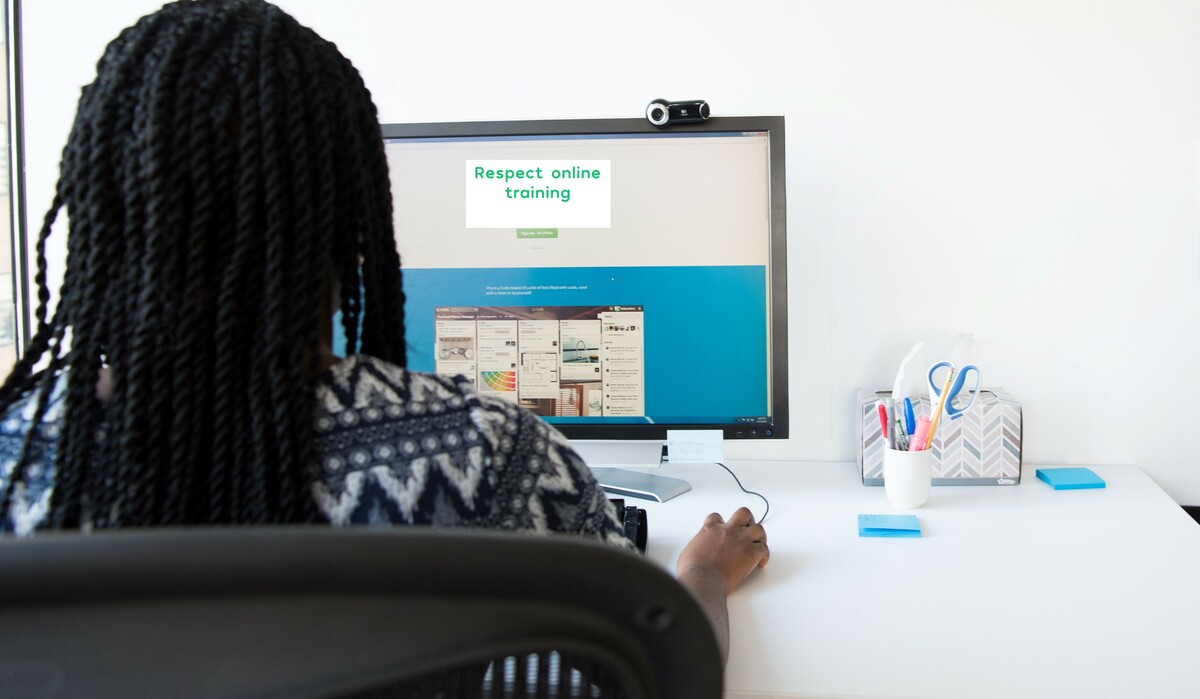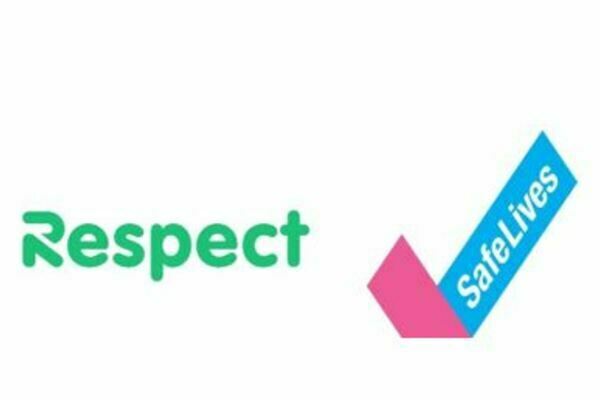
Working with perpetrators towards change
This training will equip participants with an understanding of domestic abuse dynamics, risk and risk assessment, gender, perpetrator presentations and typologies. You will explore best practice for engaging perpetrators without collusion, and working through minimisation, denial and blame using motivational interviewing skills. You will learn the principles for effective multi-agency working and information sharing in order to effectively hold perpetrators to account.
This course will improve the confidence and skills of practitioners who encounter perpetrators who may be in denial or resistant to working on or discussing their abusive behaviours. Practitioners will learn how to use a toolkit of skills taught on the course to effectively engage perpetrators and increase readiness and motivation for change.
This training course is CPD Certified.
Learning objectives
- Gain an increased knowledge of domestic abuse dynamics.
- Understand the impact of gender norms on experiences of DA and DA perpetration
- Know how risk is assessed and how to spot risk factors
- Gain an understanding of the different presentations and typologies of DA
- Gain confidence in working with dual allegations
- Gain skills to counter minimisation, denial and blame
- Have an increased knowledge of best practice in holding perpetrators to account
- Gain knowledge of best practice in multi-agency collaboration and information sharing
- Increase confidence in talking to perpetrators using motivational interviewing
Who this course is for
This course is aimed at practitioners who may encounter perpetrators as part of their day-to-day work; such as social workers, police officers, housing officers, probation officers, VAWG or MARAC coordinators, and people who work in education or the NHS.
Dates
18 and 19 September 2024 (09:30-16:00 each day) book here
5 and 6 February 2025 (09:30–16:00 each day) book here

Dealing with dual allegations of domestic abuse (CPD certified)
This hands-on 1-day course will improve practitioners' confidence and knowledge in dealing with dual-allegations of domestic abuse and identifying the primary perpetrator.
It can be difficult and stressful when practitioners are faced with dual-allegations of domestic abuse, or perpetrators presenting to support services as victims. We have seen increased demand and interest in this area recently from frontline domestic abuse practitioners, and we have responded to this training need within the sector by designing this targeted one-day training course.
This training is interactive, and uses a range of media, practical exercises, and discussion to give participants a toolkit of skills and knowledge based on evidence-based practice and recent theory.
This training will equip participants with a thorough understanding of domestic abuse dynamics, perpetrator presentations, typologies of domestic abuse , and increase their confidence in encouraging and supporting best practice in multi-agency work where dual-allegations are involved.
Learning objectives
- Gain confidence in working with dual-allegations
- Become confident in understanding the impact of wrongly identifying the primary perpetrator
- Be able to identify the primary perpetrator during assessments
- Gain an understanding of the different presentations and typologies of DA
- Be confident in advocating and encouraging professionals to hold perpetrators to account
- Understanding the dynamics and intentionality of domestic abuse
- Understand the impact of gender norms on experience of DA and DA perpetration
Who this course is for
This course is aimed at domestic abuse practitioners such as IDVAs or MARAC coordinators, or people who are experienced in working with domestic abuse, and who would like more confidence in identifying the primary perpetrator at assessment or in multi-agency meetings, and understanding complex domestic abuse dynamics.
Dates
8 May 2024 (09:30-16:00) Sold out.
17 July 2024 (9.30 – 16.00) book here
13 November 2024 (09:30-16:00) book here
22 January 2025 (9.30 – 16.00) book here

Report writing training course
About the course
Writing reports is a big part of delivering perpetrator work in a multi-agency setting. This hands-on 1-day course will improve practitioners' confidence, skills and knowledge in preparing a variety of reports to a high standard.
The training is interactive and uses a range of media, practical exercises, case studies and discussion to give participants a toolkit of skills and knowledge.
This course will equip participants with a thorough understanding of what information is required to prepare a good quality report and where this information can be found. We will explore the requirements around meeting the Respect Standard in this area and focus on best practice in preparing reports in a multi-agency environment.
Learning objectives
- Understand the different types of reports that may be required/requested
- Become confident in writing a range of reports
- Understand how to adapt your writing style depending on the audience
- Gain knowledge in structuring and writing formal reports
- Understand the pitfalls to avoid in report writing
- Improve your skills in case recording and understand how it underpins good report writing
- Become confident in distinguishing between fact and opinion
- Gain confidence in formulating a risk statement
Who this course is for
This course is aimed at practitioners working in a perpetrator service, including Service Managers, Facilitators, Case Workers and Partner Support Workers or IDVAs.
Date
3rd July 2024 (9:30-16:00) book here

Risk management in Domestic Violence Perpetrator Programmes
The identification and management of risk are a central function of any accredited service. This includes risk identification, communication of risk internally and externally and having effective procedures to manage or reduce risk on a day-to-day basis through a case management process. Respect Standard, B3 (2017).
Responding to the need for perpetrator workforce development, Respect adds this training course to its expanding training programme. It has been reviewed and rewritten by Dr Chris Newman, an expert in the field.
The 2-day training course is aimed at Practice Managers, Groupwork Facilitators and Integrated Support Service Workers. We strongly recommend attendance on this course by all staff involved in the delivery of perpetrator work within DVPPs and have a role in the identification and management of risk. Places are limited to 4 per service.
Training course objectives
- Understand and use some risk assessment tools, but more importantly engage with principles behind risk identification and assessment.
- Identify what information is needed to manage risk.
- Identify the most important risk factors for domestic abuse perpetration.
- Gain skills in interviewing/engaging perpetrators of domestic violence in the process of assessment getting the behavioural detail necessary to inform assessment.
- Learn ways to assess the different levers of power that can be used in exerting control over a partner.
Please be aware that Day 2 of this training will include a 1/2 day of self-directed learning.
About the Trainer
Dr Chris Newman has 18 years of experience doing individual work and group work with men around their violence and abuse to partners. He worked for many years as a group facilitator on domestic violence perpetrator programmes and has also delivered specialist parenting programmes for fathers who have abused their children.
He has extensive experience in training other professionals in working with perpetrators of domestic violence. He also carries out risk assessment reports and acts as an expert witness in private law child contact cases and public law child protection cases.
Dates
7 and 8 November 2024 (9.30 – 16.00 each day) book here

Culturally competent work with perpetrators of domestic abuse
Training course overview
Drive and Respect are delighted to bring you this brand new training course. This course will encourage participants to actively reflect on culture and cultural competency, and will increase understanding on how to engage with perpetrators from any background or culture. Learners will interrogate cultural biases and barriers that feed into practice, and they will learn and practice how to navigate and respond to cultural and religious justifications for abuse.
Participants will learn how to understand, work with and across different cultures. They will also consider the diverse ways by which culture influences practice.
Learning objectives
- Explore what culture is and what is required in order to be culturally competent
- Understand how increased cultural competence can prevent unintentional victim blaming
- Gain knowledge in spiritual and familial abuse
- Gain confidence in challenging cultural and religious justifications for domestic abuse
- Be prepared for pitfalls that may arise and feel confident navigating these
- Explore best practice for using interpreters
- Develop appropriate and holistic responses which are boundaried whilst respecting service users‘ right to a cultural identity
- Share good practice and tips for culturally competent practice
This course is aimed at:
- Practitioners working with domestic abuse perpetrators
- Practitioners working with victims/survivor
- Frontline workers who want to understand the impact culture has on those affected by domestic abuse
Dates
24 and 25 September 2024 (09:30-16:00 every day) book here

Sexual Respect: Confident and Effective Facilitation (CPD certified)
Training course overview
The sexual respect module of a Domestic Violence Perpetrator Programme is a particularly challenging one to deliver. This hands-on 1-day course will give Facilitators the confidence and skills to deliver this module safely and effectively.
The training will equip participants with a thorough understanding of the sexual respect module and best practice for delivering it.
This course is interactive and uses a range of media, practical exercises, and discussions to give participants a "toolkit" of skills and knowledge based on evidence-based practice and recent theory. The course also aims to give practitioners of all levels increased confidence in facilitating this module. It is particularly suitable for experienced staff to complement more general group facilitation training courses they may already have attended.
Learning objectives
- Gain an understanding of how sexual abuse occurs as part of domestic abuse and its different typologies.
- Prepare for the common pitfalls that may arise when delivering this module and practice responding to these when they arise.
- Explore the the dynamics of gender between facilitators.
- Gain a thorough grounding in the British context including exploring up to date research and knowing how to counter rape myths.
- Practice delivering sexual respect group exercises.
- Become familiarised with a range of models and tools to support the facilitation of the sexual respect module.
- Increase confidence teaching consent.
Suitable for
Practitioners with a range of experience currently working as facilitators for a DVPP. Particularly suitable for experienced staff members.
Dates
29 October 2024 (09:30-16:00) book here

Delivering the Respect 1-1 Programme for Work with Perpetrators
Training course overview
This hands-on 4-day training course will give you the confidence and skills to work one-to-one with perpetrators using the structured Respect 1-1 Programme. It is for people who intend to deliver the Respect 1-1 Programme in its 24-session format.
Learning objectives
- Learn how to facilitate a variety of exercises from the Respect Programme manual
- Learn how to use the manual to deliver structured sessions
- Learn how to analyse incidents of abusive behaviour and help perpetrators identify and practice non abusive behaviours.
- Practice using techniques which address denial, minimisation, and justification of abuse.
- Develop strategies to enhance perpetrators' motivation to change.
The training is participatory and practical, with a primary focus on working interactively with the Respect 1-1 programme materials.
Suitable for:
Practitioners who are already delivering/wish to start delivering the Respect 1-1 programme in the 24-session format.
An in-depth understanding of the dynamics of domestic abuse and experience working with perpetrators is essential.
Where
Online, via Zoom
Dates
23, 24, 30 and 31 May 2024 - book here
3, 4, 10 and 11 October 2024 book here
6, 7, 13 and 14 February 2025 book here

Facilitating groupwork for perpetrators of domestic abuse: essential skills (OCN accredited)
Training overview
This course comprises two parts:
- a 3-hour self-paced online training, which must be completed before the next part as it provides fundamental contextual knowledge; and
- a 4-days trainer-led training on Zoom.
The course will increase participants' skills and confidence to facilitate groupwork programmes with men who perpetrate domestic abuse against women.
Learning will be highly interactive and participatory, using a variety of training techniques and tools, video clips, case studies, re-enactment, and roleplay to strengthen practice skills.
Dates
9, 10, 11, 12 July 2024 (9.30 – 16.00 each day) book here

Integrated Support Service Worker essential training (OCN accredited) - SOLD OUT
Training course overview
This hands-on 3-day training course will give you the confidence and skills to offer responsive and trauma-informed support to survivors of domestic abuse as part of the Integrated Support Service.
This training will equip participants with a thorough understanding of the Integrated Support Service, and a deeper knowledge of domestic abuse, trauma and recovery within the context of the domestic violence perpetrator programme.
This training is interactive, and uses a range of media, practical exercises, and discussion to give participants a "toolkit" of skills and knowledge based on evidence-based practice and recent theory. This is also an excellent 'refresher' for experienced Integrated Support practitioners.
Learning objectives
- Learn techniques for Proactive Contact, and how to get the best out of Case Management.
- Gain an understanding of the Respect Standards for Practice.
- Become able to talk to survivors about the programme, empowering them whilst managing their expectations.
- Practice your advocacy skills with other agencies, learning how to respectfully challenge victim blaming.
- Practice helping survivors to "join the dots" and understand the dynamics of domestic abuse.
- Understand and be able to use a range of risk assessment models, respond to changes in risk and safety plan accordingly.
- Practice supporting survivors at different stages of their recovery, using recovery models and theory to conceptualise their experiences.
- Learn the physiological manifestations of trauma, and learnt to use a range of grounding and relaxation techniques.
Suitable for
Practitioners with a range of experience who are currently working - or who would like to start working - in the Integrated Support Service.
An in-depth understanding of the dynamics of domestic violence and abuse is essential.
Dates
16,17 and 18 April 2024 (09:30-16:00 each day). SOLD OUT
Participants must attend every full day to complete training.
Where
Via Zoom

Working with male victims of domestic abuse
Training course overview
This self-paced training course is designed to help frontline workers support male victims of domestic abuse.
Participants will identify the domestic abuse experiences of male victims and the barriers to help-seeking; and learn how to use the Respect Toolkit for Work with Male Victims of Domestic Abuse, so they can better meet the needs of the men they work with. This training course is CPD accredited (March 2020).
Please note that this interactive, dynamic training is conducted on an online learning platform and is self-paced - it is not trainer-led. The course should take around 6 - 8 hours to complete. The content of this training has been organised into small units, making learning effective and enjoyable.
Learners will have access to the training platform for 1 month following their enrolment.
Training course objectives
- Develop understanding of key terms/concepts and legislation;
- Understand the domestic abuse experiences of men and their help-seeking barriers;
- Identify additional challenges and help-seeking barriers for GBT* men or men from specific ethnic backgrounds;
- Develop skills in assessing the risks to and needs of male victims, using Respect's "who is doing what to whom and with what consequences" model and the assessment tools (brief and longer) from Respect's Toolkit;
- Gain skills in responding appropriately to male victims
Who is this course suitable for?
- Frontline workers whose role is to support male victims of domestic abuse in voluntary, statutory or private organisations (such as Domestic Abuse Practitioners, IDVAs, Social Workers, Police Officers);
- Workers who come into contact with male victims occasionally, such as Housing Officers, Counsellors, Healthcare Practitioners etc;
- Policy Officers, Commissioners and funders of services who need an in-depth understanding of the needs of male victims.
Prior domestic abuse awareness training or work experience is essential.
Cancellation policy
You may cancel your purchase of the course no later than 14 calendar days after the day we confirm we have accepted your order and enrolled you onto the course.
To let us know that you want to cancel and get a refund within the cancellation period, email [email protected]
Dates
Rolling access - the course is self-paced and there is no trainer input. Book here

Service Manager's Training
Training course overview
This training course is for Service Managers of interventions for perpetrators of domestic violence and abuse. It covers everything they need to know to manage a Respect-accredited service.
The course was developed by Respect and Safe Lives, and it is relevant for Service Managers of Domestic Violence Perpetrator Programmes (DVPP's), Intensive Case Management (such as the Drive Project) and other interventions for perpetrators that are eligible for accreditation against the Respect Standard.
The course is very interactive and will be taught through a series of half-day workshops, as well as self-directed learning. Learners will build a portfolio throughout the course which will be assessed, and feedback will be given.
All workshops will be facilitated remotely and take place on 5 Mondays between 13:30-17:00. Attendees must attend each of the five sessions to receive their certificate of completion.
Session 1: Monday 13 May 2024, 13:30-17:00
Line management, reflective practice, and professional development
Session objectives
Understand the importance of reflective practice in developing professional competency and supporting staff to develop.
Explore the purpose of line management supervision and how to deliver this effectively.
Learn what professional development activities are required in the Respect Standard and look at how to develop a continuous professional development system, and a learning culture, within a service.
Session 2: Monday 17 June 2024, 13:30-17:00
Governance, risk mitigation and accountability
Session objectives
Understand how to put processes in place that ensure accountability and good practice throughout the service, in order to meet the Respect standards around policies, procedures and management structure.
Learn what good governance looks like, and the pitfalls of bad governance.
Look at data collection and understand what types of data should be collected, and how it can be used to improve service delivery.
Learn about different types of organisational risk and how to manage and mitigate them.
Session 3: Monday 15 July 2024, 13:30-17:00
Risk assessment and managing a safe and effective intervention
Session objectives
This session will focus on the processes that the Respect Standard requires to manage a safe and effective intervention.
Think about the relationship between the perpetrator intervention and the integrated support service/IDVA.
Look at the process of assessing a perpetrator's suitability for an intervention.
Examine and evaluate different risk assessment tools, and practice using them.
Learn how to manage a service safely by understanding risk assessment and management as a continuous process.
Learn about the legal duty of care an organisation has towards its staff and discuss ways to support staff wellbeing.
Session 4: Monday 9 September 2024, 13:30-17:00
Safeguarding and effective multi-agency working
This session will focus on the elements necessary for effective multi-agency collaboration in perpetrator work.
Explore best practice when carrying out safeguarding duties.
Think about how to support and encourage good practice around holding perpetrators to account in a multi-agency environment, with our advocacy and use of language.
Look at effective and proportionate information sharing with other agencies, and how to provide good quality reports.
Session 5: Monday 7 October 2024, 13:30-17:00
Best practice around equality, diversity, and inclusion
Session objectives
This session will explore how to provide equality of opportunity and access for service users and staff, and how to comply with relevant legislation.
Learn about the legislative framework for EDI policy in the UK, and how to meet the Respect Standard requirements around this.
Understand how to build an inclusive and responsive service that is accessible to all.
Understand the elements needed to create an effective EDI strategy.
Explore best practice for the recruitment, training and ongoing development of a diverse and engaged workforce.
To book your place click here

